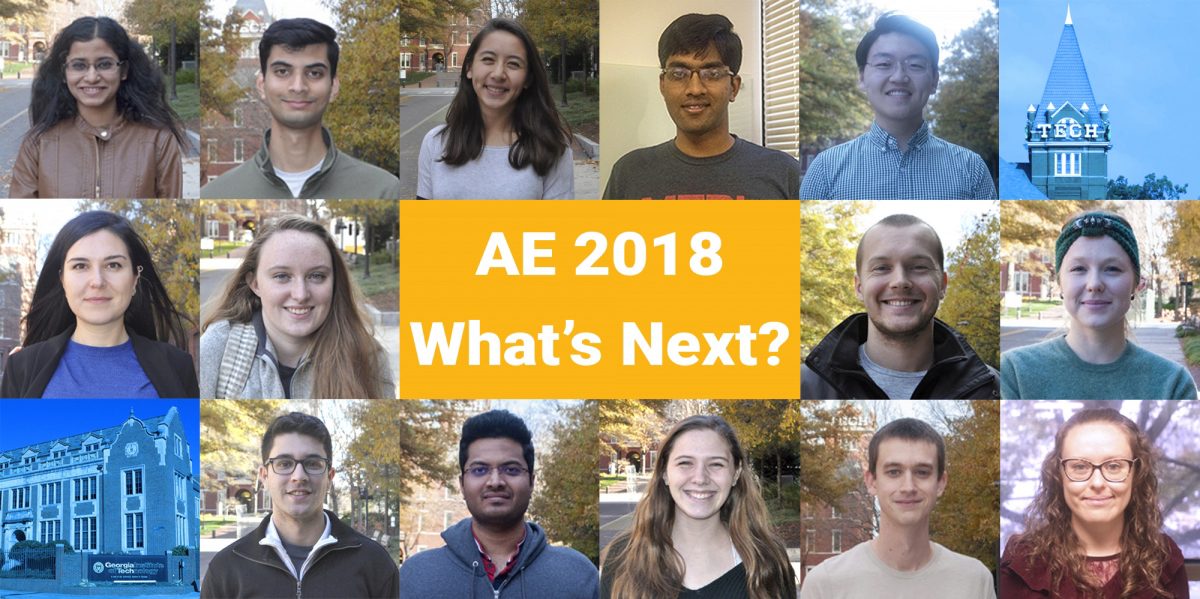It's An AE Tradition. We Had To Ask. Whether it's a B.S, an M.S., or a Ph.D., the students graduating on December 14 and 15 have some incredible potential ahead of them. We asked a few of them to take a minute to give us a peek at what their next adventure will be.
Dawn Andrews, B.S. AE '18
What is your next adventure?
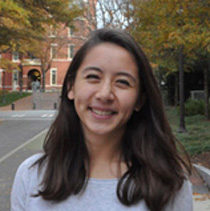 |
| Dawn Andrews, BSAE '18 |
I am coming back to the AE School for a master's degree. My research plans are still oscillating between systems and structures. Overarching it all is design: seeing something in my head come to life is very exciting to me. I'm glad I'll have options.
What about your next adventure are you most looking forward to?
The best thing is that I won't have to stop doing anything I love here. It all gets to keep growing. And while I know it will be different, I am excited to be able to keep working with this family - the AE School.
Did you have any previous co-op, internship, or research experience in this area?
My first research experience was in 2016, when I joined the R.A.N.G.E. project with Dr. Gunter. I was on the structures subteam. Then I joined the T.A.R.G.I.T. cubesat project, again the structures subteam. After that I joined Dr. Holzinger on the Omnissa cubesat project, where I worked on physical integration of the satellite - hooking up the thermal control systems. Because it's going to the Antarctic, the TCS for that environment was a really hard task. How do you protect it from all of the elements and maintain the right internal temperature?
I also did work in Dr. Ruzzene's lab because I was searching for something really technical, more theoretical. A little more like the academic work I'd expect in grad school.
My internship experience has been at SpaceX. I guess you'd say I found my love and stuck with it. I interned there beginning in the summer of 2017 as a part of their mission management. I was a customer operations and integration intern. I got to work directly with customers, like the Air Force, all of them on the government side. I bridged the gap between the way SpaceX does it and the way our customers do it. It pulled heavily on the systems-level work I'd done on cubesats at AE. Through the one-and-a-half rotations on this assignment, I learned all of the pieces of the rocket.
For my next rotation at SpaceX, which began January of 2018, I worked in vehicle engineering design. I got to work with a variety of systems, test engineering, design tools, and design work. This gave me such a breadth of experience, obviously, but when you are working at a place like SpaceX, you have no choice but to gain depth as well.
How did your educational experience at Georgia Tech help you to achieve your goals?
Georgia Tech almost never tells you 'no.' There's always a direction you can choose to learn more. That's what I've been discovering.
And it's really been the take-away everywhere I go: there's always a fundamental aspect of teamwork, of the greater sense of purpose that a team can make possible. We wouldn't be able to go to space at all if it weren't for massive teams of experts who are each working on the entire endeavor. I've seen it at SpaceX.
My time at AE had that same effect: the school is a community where everyone has demanding goals and is relentlessly chasing them down. It's a great place to be.
What advice would you give to an underclassman who would like to follow the same path?
You have to learn to say it for yourself, but the message is: if you are passionate, go do it. There won't be one specific right way to do everything. It's such an uplifting community to be a part of.
I could say I've learned to say 'no' but it's really that I've learned to be intentional. I'm passionate, but I am intentional about doing things that I care a lot about. When you keep that in mind, the resilience and patience you need comes more naturally. You know you are following your passion
Phillip A. Szot, B.S. AE '18
What is your next adventure?
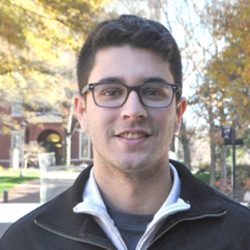 |
| Phillip A. Szot, BSAE '18 |
I'll be starting my graduate program with Dr. Lightsey, focusing, right now, on the RECONSO cubesat mission, where I've been a mission manager.
What about your next adventure are you most looking forward to?
I'm excited about getting to focus on system engineering, specifically in space systems. My career goal is to work in the area of human space flight, like the Dragon2, the Starliner, or the Orion vehicles. Systems-level engineering gives you the ability to do high-level integration of all aspects of mission operations. Systems engineers have to know how everything works together so they have to know about all of the components. If you can see how things mesh together at every level, you really have a good over-arching view of the mission.
In the last astronaut class, announced by NASA last year, there was a systems engineer from SpaceX, so I think that it's the right track for me.
Did you have any previous co-op, internship, or research experience in this area?
As a transfer student, I never managed to get around to setting up an internship or a co-op. I came to Tech in 2016, and I had to take all of my upper level AE classes, the ones I couldn't take anywhere else. That took up a lot of time. But I did get involved in research, with Dr. Holzinger and Dr. Lightsey.
I worked a lot in the Space Systems Design Lab (SSDL), where I've been training to be a satellite operator for the Armadillo cubesat, which was developed by Dr. Lightsey. We'll be doing the ground station for that here, on the top of Montgomery Knight so I wanted to be completely comfortable with the user interface. Armadillo been delivered to SpaceX for a launch with the STP-2 Mission, which is on the next Falcon Heavy. When it's up there, we'll be using that ground station to communicate with the satellite and to downlink telemetry and other data.
I've also been working on the RECONSO cubesat, flight mounting hardware for different boards, creating a mobile clean room, and assembling and testing the Heimholtz cage.
This past summer, I also got to work with Dr. Schrage as a part of NASA's Innovative Mars Exploration Education & Technology (IMEET) summer program, where I worked with high school students here and in Connecticut on simulating a mission to Mars, similar to what will be done in 2020 by the NASA Mars Program. I was instructing them in the basics of engineering - CAD, problem-solving, things like that.
How did your educational experience at Georgia Tech help you to achieve your goals?
It's just so amazing the chance that AE takes on undergraduates, the way they did 2 years ago when they let me join the RECONSO cubesat project. It started, really, when I was accepted as a transfer student and I visited campus. They gave us a tour of SSDL. It was really exciting to see the work, and I got to talk with grad students who were working on RECONSO and other cubesats. I started asking how I could get involved, and the grad students told me to go talk to Dr. Lightsey, who eventually invited me to campus for a mini-interview, to see what my strengths and experience were. That's how I got hooked into the RECONSO cubesat.
Another thing that helped me was doing a study-abroad semester in Limerick, Ireland. As a transfer student, I was coming into AE to take all of the higher-level classes with classmates who'd known each other for two years before I got here. But the friends I made in Ireland became my every-day support during the school year, and that made all the difference.
The faculty always challenge you at Tech, and they are always there to help you so you never feel lost. That's an important part of any student's success.
What advice would you give to an underclassman who would like to follow the same path?
If you area transfer student, do the 'trial and error of being a serious student' before you get to Tech, because when are in AE, it's serious business. And that's what I did at Berry College, where I started. I had my experience, there, of not studying enough for a test and seeing what that did. And I had support there, to help me see what I should be doing. So when I got to Tech, I'd thought a lot about what academics and a work-life balance meant to me. I was ready to take this challenge seriously, which you have to do, as a transfer student, because you don't have as much time.
Kaivalya Bakshi, Ph.D. AE '18
What is your next adventure?
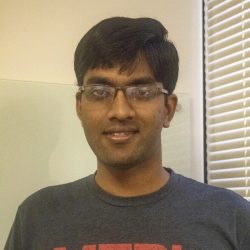 |
| Kaivalya Bakshi, PhD AE '18 |
I will be working with GE Research as a controls systems research engineer. I'll be working on a plethora of applications, including core designs of robots and autonomous systems.
What about your next adventure are you most looking forward to?
It is one of the most interesting times to be a control engineer in robotics. GE has a team working on drone delivery.
Did you have any previous co-op, internship, or research experience in this area?
I spent 8-9 months interning at Mitsubishi Electric Research Labs [MERL] in Cambridge. There, I worked on larger scale control problems - the idea behind a flock of birds being able to fly in an agile fashion, without collisions. We have the same goal for fleets of autonomous cars. They don't want to sell autonomous cars to individuals.They want fleets. So I working on core research for control algorithms that would allow fleets to function safely.
Research wise, at Tech, I focused mainly on autonomous systems. It is a huge area with lots of sub areas, so I was really happy to work with Prof. Theodorou. He let me work with MERL, with students. He encouraged collaborations.
How did your educational experience at Georgia Tech help you to achieve your goals?
When I started my PhD. studies here, I was not certain of my goals, so my experience here helped me to shape those goals. As an engineer, it's not good enough to go in with the intention of contributing to technology; you have to know what you want to contribute and work hard at it. The atmosphere at AE helped me to shape exactly what I want to do - large-scale stochastic control - because I talked to different professors, different students, different researchers. I went to ME, to Math, to ECE. That's how I learned about what Dr. Theodorou was doing. And that changed everything.
What advice would you give to an underclassman who would like to follow the same path?
Work with industry while researching, because academia has its own agenda - to push science- whereas industry has to rely on proven techniques. To give yourself the best exposure, try to do problems with whomever you can, on as many different topics as you are interested in. I had a great exposure at Tech. And I'd say that's what you should expect from a doctoral program, to give you more exposure. In the end, you will build depth as you find your niche.
Manon Huguenin, M.S. AE '18
What is your next adventure?
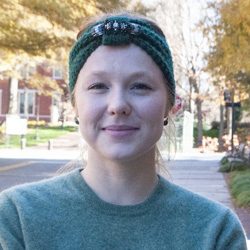 |
| Manon Huguenin, MSAE '18 |
I am going to continue my studies as a doctoral student in ASDL focusing on data fusion and machine learning.
What about your next adventure are you most looking forward to?
I'm most excited about applying everything I've learned during my master's program. My master's thesis, "Development and Validation of 3D Cloud Fields Using Machine Learning Techniques" was a beginning. I'm looking forward to working on new problems.
Did you have any previous co-op, internship, or research experience in this area?
At Tech, I worked on a project with the FAA where we were trying to model future supersonic aircraft. It was exciting because we were trying to get back a whole new field of flight. Our challenge was to outline the limitations of their current models. To do that we had to research the consequences in terms of noise and air pollution.
I've also done some research with Airbus, focusing on creating a digital twin of an actual aircraft.
How did your educational experience at Georgia Tech help you to achieve your goals?
In France, we're not encouraged to do a Ph.D. unless we want to teach. What I like in the U.S. is that the concept of research is more linked to industry, so a Ph.D. makes sense. And at ASDL, we are expected to be able to discuss our research directly with the client. The research engineer is responsible, overall, but it's the up to you to make people aware of what your research produced. That's an amazing thing to come out of graduate school with.
What advice would you give to an underclassman who would like to follow the same path?
I guess it's really important to be open to what people say about your work. You've already gotten a diploma but you have to put it all out there in your work, and accept that people can challenge it. Accept criticism from your mentors. They are not doing it for free. They are doing it to help you learn.
Terry Stevenson, Ph.D. AE '18
What is your next adventure?
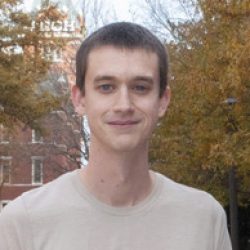 |
| Terry Stevenson, PhD AE '18 |
I have accepted a job at NASA Ames as a research engineer in their small sats group. One of the projects I'll probably see is the Biosentinel cubesat. It's a six-unit small sat. We'll probably be working on the propulsion system.
What about your next adventure are you most looking forward to?
Working at Ames will be cool. I've enjoyed working with NASA while I've been here as a student researcher, but I'm sure we'll have greater resources at the Center.
Did you have any previous co-op, internship, or research experience in this area?
My research at Tech focused on multi-functional structures like small sats, where we were providing not just the physical support for the components, but also a propulsion system. We designed in CAD and 3D printed the entire system, so I got to work on all of the pieces for the lifecyle of this system - from concept, to 3D design, to assembling, to testing, and finally, to delivering it this past summer to Ames. The second part of our work was hollowing out the structure, with the goal of having it be very compact. So the propulsion system was inside the structure.
I have interned at Ames and worked with them remotely, at Tech. The summer of 2018, I worked at JPL, where we did the entire concept design for a multi-function structure for a planetary probe.
How did your educational experience at Georgia Tech help you to achieve your goals?
Dr. Lightsey, my advisor, deserves a lot of credit. He's good at keeping people on track - his lab is well-run - and he's always willing to help out. But he is also willing to step back and let you pursue your own questions. He made the whole process of grad school a lot easier. His critiques were thoughtful and fair.
Georgia Tech has a lot of opportunities to work on different projects that are space-related - Prox 1, R.A.N.G.E, T.A.R.G.I.T - and that makes it very exciting to pursue a degree here. And you always know that there are opportunities to collaborate with people outside your project.That's given me a lot of breadth in my experience here.
What advice would you give to an underclassman who would like to follow the same path?
Classes are important, but they are not enough. There are opportunities to work on a lot of things outside of class, and you should take them. Grad school is the chance to gain that breadth of knowledge, to try different things. When you go to work for a company, you will be paid to do just one thing.
There's an opportunity to pick up random skills that may not be related to your research. I working on multi-functional structures which involves a lot of mechanical design, but I've also ended up working on electronics, circuit boards, because it was a need we had at the time - to design custom circuit boards. I think Ames hired me because I was willing to understand how different parts of a system work together. That learning was valuable.
A Ph.D. is about becoming a specialist, so you really go deep. But it's also a chance to branch out over time. My advice would be to pick up large assortment of skills along the way. It will help you in ways you can't imagine.
Adyasha Mohanty, B.S. AE '18
What is your next adventure?
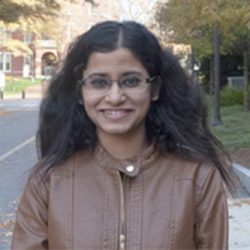 |
| Adyasha Mohanty, BSAE '18 |
I will be starting my graduate program with Prof. P. K. Yeung focusing on direct numerical simulation of turbulence and turbulent flow. We will be using GPUs to conduct the largest simulations in the world. My intent is to earn a Ph.D.
What about your next adventure are you most looking forward to?
There will be far fewer classes, which will allow me to focus more on research, which will allow me to go in depth. I love the area of turbulence and because the problems I am tackling are called 'the unsolvable problems of classical physics' I am very excited.
I am also excited about being a TA, because I have never been a TA. I look forward to mentoring others
Did you have any previous co-op, internship, or research experience in this area?
I started doing research my first semester -- at the Aerospace Systems Design Lab -- and I've been going ever since. I'd heard about ASDL projects at an open house, and since I came here to learn about space, I immediately asked. I started with a project on parameter modeling of space vehicles. I also did a Grand Challenge on drones and UAVs and a Vertically Integrated Project (VIP) that gave me my first hands-on experience with 3D printing, CAD, and laser cutters. We needed them for the design competition.
As a sophomore I interned at a Asteria Aerospace, a UAV company in India that was started and owned by an ASDL grad (Neel Mehta). I did systems integration and testing for my first internship there. Then I went back in the summer to do work on the systems, avionics, and mapping teams. My junior year, I went back to ASDL to work on a drone project where we did experimental characterization of batteries, propellors, and motors. That's when I was introduced to turbulence. I asked a Ph.D. student about what it involved and he said that we use super computers to simulate things turbulence subjected to magnetic fields. He told me that Dr. Yeung was doing work in that area, so I went to Dr. Yeung. He gave me a brief overview, which kind of scared me, because at the end, he gave me three textbooks so I could understand turbulence and learn Fortran, which is what he used to perform simulations. It was very challenging. It was very scary. And it was exactly why I came to Georgia Tech.
The summer of my junior year I began doing research with Dr. Yeung - focusing on direct numerical simulation of isotropic turbulence. I also got an understanding of the nature of velocity gradients and probability density functions. With the help of a PURA grant, I did an independent study last summer studying the lagrangian method. One of his Ph.D. students in Germany set up the process so that I could write codes. It was my first time. By the end of the summer we had results that showed that Brownian motion is more dominant than fluid advection at high molecule diffusivity.
How did your educational experience at Georgia Tech help you to achieve your goals?
First of all, the vigor, the level at which we are challenged, every day, in every exam, in every class. Every day, I woke up thinking: 'how will I be more challenged than I was yesterday?'
Secondly, because I'm an international student, I didn't know what my opportunities would be for research or internships. But Tech does a great job setting you up to find opportunities. I worked on a Grand Challenge with NASA and I received a PURA to do my own research.
Lastly, Tech really encouraged me to network with other AE grads and other Tech grads. And that's how I got my internship.
What advice would you give to an underclassman who would like to follow the same path?
I think the most important things is to have a mindset and the willpower to know that you can do it.
A lot of times, at Tech, I took 18-20 hours of credit each semester. I heard a lot of discouraging things about that -- about how no one's ever done that. But, in my mind, if no one has done it yet, then there's a place for me to do it first. And I did it. I finished my undergraduate degree in three-and-a-half years. And I had support when I needed it, but, also, no one stopped me.
The other thing I'd say is that you should not come to Tech with one rigid idea of what you will learn. I came because I wanted only to study space. I'd never heard of turbulence. Once I found it, I found what I wanted to study for a long time.
Lastly, find a study group - a group of AE friends who will stick behind you no matter what. And get a mentor, someone who can point things out to you when you need direction.
If you want to be an aerospace engineering student at Tech, you have to wake up every day wanting to be challenged.
Florence Duveiller, M.S. AE '18
What is your next adventure?
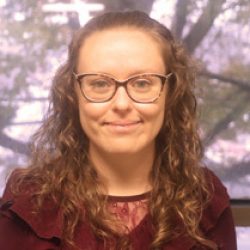 |
| Florence Duveiller, MSAE '18 |
I am moving back to France to work for the Center of Space Studies, the French version of NASA. I will work as a mission planning engineer.
What about your next adventure are you most looking forward to?
I am excited about returning to France with this degree. I will be working in a new city - I'm from Paris, but I'll be working Toulouse - and I'm very excited about returning to the space industry not as a student, to see what my opportunities will be. I had a lot of experience as an undergraduate, I was the head of the Student Space Center which created research partnerships for students and industry. But now I will not be the student.
Did you have any previous co-op, internship, or research experience in this area?
My best and biggest accomplishment while I was here was my thesis, "Communication Architectures between Earth and Mars." It represents a lot of work, because, when I got here, I knew nothing about this subject. I had to start from scratch, to find a thesis that I could do. I had a lot of help from my advisor, Dr. Mavris, and from Dr. Olivia Pinon Fischer, who helped me to define the literature I had to study.
I was also involved in the Airbus Design Space Exploration project, where we used aircraft as a baseline and started to consider all of the options for changing it. I focused mainly on the wings - how having a winglet at the end influences other aspects of the vehicle.
I also was involved in a NASA Grand Challenge where the goal was to design a framework to generate a mission to Mars. We had to look at all of the possibilities -- the launch, the design, the types of orbits, the types of propulsion systems - to generate the optimal framework. Then, we had to meet with subject matter experts from NASA to explain our work.
How did your educational experience at Georgia Tech help you to achieve your goals?
My thesis really helped me to tie things together. But, what really helped was the process of my entire education. In France, my education was very theoretical. Here, it was more experimental. The combination was great.
Also, coming here, to the United States, was smart. If you want to work in space, which I do, you have to know it's a global enterprise. It's no longer one country, one mission. Countries are collaborating so, for me, having that experience in the United States was great training for the future.
What advice would you give to an underclassman who would like to follow the same path?
First, it would have to be: don't be afraid of challenges, of taking on difficulties. Go for the most difficult problems because it's through facing difficulties that you gain knowledge about the subject and about yourself.
Also, be curious. Go see people who are learning things that you are not learning. Listen to them, and get interested.
And that reminds me of this: Georgia Tech is not your whole life. Get outside of the School sometimes, even if it's just to get involved with a student group -- like SEDS [Students for the Exploration and Development of Space]. Anything that feeds your curiosity is a good thing.
Murali Gopal Muraleedharan, Ph.D. '18
What is your next adventure?
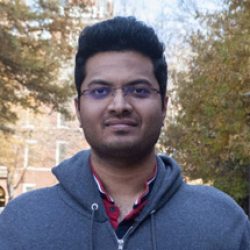 |
| Murali Gopal Muraleedharan, PhD AE '18 |
I will be moving to Pennsylvania to begin a post-doc position at Penn State with Dr. Adri Van Duin, a pioneer in the development of the Reaction Force Field. That describes the relationship of the energy of a system as a function of interatomic distances. I've been modeling heat transport and chemical reactions independently. There's still an open-ended question about how they interact with each other. I'll be developing a whole new method that unifies these two processes.
A week before I move, I will become officially engaged to my girlfriend. We will be participating in the traditional engagement ritual with my family in India by Skype.
What about your next adventure are you most looking forward to?
This research is totally new. There's not any literature on it, so there's room for me to publish something of significance. Dr. Van Duin has always been curious about this topic, and now he's got the right candidate to move the research forward.
Did you have any previous co-op, internship, or research experience in this area?
At Tech, my research has focused on heat transport properties of condensed phases under the direction of Dr. Asegun Henry (ME) and Dr. Vigor Yang (AE). This has been very involved. The most difficult part has been nailing my thesis down. I started with a different hypothesis but narrowed it down further using computational and theoretical methods.
I did spend a summer interning at Jawaharlal Nehru Centre for Advanced Scientific Research (JNC ASR) where I experimentally measured the collision properties of granule materials. That led me to fundamental research on flow properties of dilute gases.
How did your educational experience at Georgia Tech help you to achieve your goals?
Georgia Tech made me much more resilient. I came to Tech from an undergraduate program where I was fortunate to receive high grades, but not to ask questions or to face failure. At Tech I had to face challenges I'd never encountered before and problems that sometimes ended in failure. It was the failures and the comebacks that made me resilient. They taught me the value of humility, and of a good work ethic.
Sometimes my professors would give me a problem that would take at least 70 hours to solve, and tell me to give it back in a week. My first reaction was, well, I was baffled.
And then I started doing it.
Those sorts of challenges worked me much harder than my undergraduate program. And that work paid off. I am more productive now, more disciplined. I keep to a schedule and manage my time. The results are worth it.
What advice would you give to an underclassman who would like to follow the same path?
My most important advice is from what I learned: having excellent academics is great, but to be successful, you have to be ready for setbacks. Keep moving. You'll be trying to solve hard problems so you'll fail.
The second thing is, be aware of real-world problems that you are trying to solve. Don't try to get a Ph.D. for the sake of getting a Ph.D. Have a bigger purpose in mind. My ultimate goal is to work on creating clean and sustainable energy. I will be working on phenon-mediated catalysis.
Alanna Carnevale, B.S. AE '18
What is your next adventure?
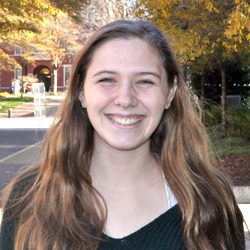 |
| Alanna Carnevale, BSAE '18 |
I'm coming back for graduate school, possibly to get a Ph.D. I'll be working in the Aerospace Systems Design Lab with Dr. Mavris, most likely in space and defense systems engineering.
What about your next adventure are you most looking forward to?
I never thought I'd want to continue learning as much as I do now. I don't think I'll ever be able to learn enough, but a Ph.D. will be a good beginning.
I am excited to see what else I can do within aerospace engineering, especially getting the chance to work on bigger picture areas instead of individual subsystems that are just parts of the whole.
Did you have any previous co-op, internship, or research experience in this area?
I interned at GTRI working on a project where we were modeling and simulating swarms of UAVs. The goal was to create efficient, economical, and well-working systems so UAVs could visit challenging environments, using sensors to survey the area, and return with the information for analysis. My whole summer was spent making decisions about which sensors, which UAVs, how many UAVs, and what type of swarm would make an optimal arrangement. I also work in the Space Systems Design Lab (SSDL) on a supersonic parachute dynamics project where we used NASA data in a transonic wind tunnel test to figure out which data sets offered the most stable dynamics so we could design a stable parachute. I also worked with Dr. Lightsey on developing a calibration device that we will eventually use on a test stand for a thruster. It looks like a hammer. It is designed to deliver pulsed movements that we will vary for calibration of the test stand.
How did your educational experience at Georgia Tech help you to achieve your goals?
I've had a really good support system at Tech, probably because I've spread it out. I've worked as a tour guide, a peer leader, and have been a member of Alpha Xi Delta, a sorority that helped me to not devote my whole life to work. At GTRI, I worked with a really intelligent grad student, someone with whom I shared a lot of similarities in terms of knowledge and competence. I became very close to her, almost as a mentor, and what this did was it gave me confidence. I saw her do well and get a job. And that made me realize that I could also do well and get a job in this field, too. They say it's important to get a mentor, and I used to think that was just a lot of words, but it's true.
What advice would you give to an underclassman who would like to follow the same path?
I really think people should not doubt themselves. It's important to go into a challenge with confidence. There are so many things I got through because I worked hard. It's not in my nature to give up, and that kept me going until I saw I could do it. I know that at Tech it is sometimes hard to become motivated, but hard work is the answer.
Don't let fear of failure stop you from trying. There were multiple times where I got a test and I didn't know how to do a single problem. But then, I'd start looking at it, and I'd start realizing that I could work my way through it. On my first final exams, I was convinced I'd failed everything. But I didn't.
Gokcin Cinar, Ph.D. AE '18
What is your next adventure?
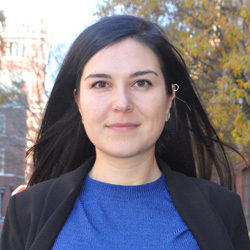 |
| Gokcin Cinar, PhD AE '18 |
I will be taking a research engineer position in the Aerospace Systems Design Lab (ASDL) where I've spent the last six years. It feels like home because I have been taken such good care of. As a RE, I have lots of sponsored projects on hybrid electric vehicles that I'm working on for Boeing, NASA, the Air Force Research Lab. My work will focus on subsystems integration, sizing, and synthesis.
What about your next adventure are you most looking forward to?
Let's do the math on this: for the first time in 22 years I am not a student. That is exciting for me. I will still be a student, however, because there is always so much to learn. But now I get to learn it in a very different environment - as a working engineer.
Did you have any previous co-op, internship, or research experience in this area?
It's the internships and the research that made the difference for me. When I first got to Tech, all of my schooling was in theoretical and abstract concepts. I was amazed how much I learned working on real-world applications. This is how I developed my research interest in hybrid electric vehicles.
I did one internship at a German company called PACE Aerospace Industries that produces an aircraft system and subsystem sizing software that we've used at ASDL. I contributed to the software development and developed physics-based models.
Research-wise, I worked on a number of different projects. My first was NASA's Environmentally Responsible Aviation (ERA) where I worked with a team that did fleet-level analysis of aircraft noise and emissions. I also worked with NASA on an electric motor project. And I worked with the AFRL on the development of a thermal management system for hybrid electric aircraft.
None of these things were even in my head when I came to Tech. I learned all about these applications and the role I could play in developing new applications when I came to ASDL.
How did your educational experience at Georgia Tech help you to achieve your goals?
The most prominent thing has to be solving real-world problems. When you solve a problem it gives you awhole new power and perspective on the theory you learned as an undergraduate. You study engineering, yes, but you don't know how to apply those theories until you have a problem to solve.
Once you get a taste of that kind of learning, your eyes open. You realize that you have the toolset and that you are developing the skills to apply it. That gives you so much satisfaction, even when the problems are really difficult.
The other thing is, Dr. Mavris has been a role model from day one. There are so many projects to choose from, and he gives you the freedom to choose, but he also let me switch gears so I could pursue the projects that I loved. And that's an important thing for a Ph.D. student because the work, the research, is very hard. If you do not love what you are studying, you will not be successful. Dr. Mavris gives that freedom to every single student, and it matters a lot.
What advice would you give to an underclassman who would like to follow the same path?
Don't expect to be spoon-fed. If you want something, you need to be asking for it because there are so many grad students hungry for the same level of attention and opportunity. You cannot hide and wait for someone to discover your ability to contribute. You need to show your willingness to work hard and produce.
It's easy to be intimidated, but a mistake to let that define you. As an international student, I was afraid of getting lost because there are a lot of smart people here. So I went to Dr. Mavris and I said "We have a lot of projects, and a lot of sponsors, and I want to know how I can best contribute to them and to the lab." That visit made me visible to Dr, Mavris and to others who are running the lab. He knew I was serious about contributing. And once I started working on projects, he also saw that I was someone that other students could come to, to ask questions about my research. That made me feel like I was part of the lab. It also helped the lab with its mission.
Aaron Wilks, M.S. AE '18
What is your next adventure?
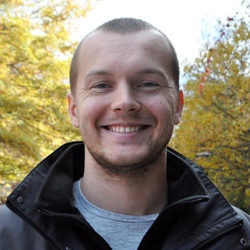 |
| Aaron Wilks, MSAE '18 |
First of all, my wife and I will be taking a trip to Europe. After that, I'll start my job as an aeronautical engineer working on store separation in the F-35 at Lockheed in Fort Worth, Texas.
What about your next adventure are you most looking forward to?
The most exciting things is the fact that this will be a new situation for me. As I get used to my job, I'm excited to see what opportunities will be available to me. My experience at Tech is definitely going to help me - I've been pushed hard and a lot has been expected of me. But I'll have new problems and new standards to learn.
Did you have any previous co-op, internship, or research experience in this area?
My research at Tech looked at aerodynamic modeling for bluff bodies -- that's any structure that's not easy to fly. Our work has been on slung loads for rotorcraft and the problems that they create. There are power-limited speeds for rotorcraft with slung loads, but the loads can still become unstable, which, ultimately, can cause a crash. We can use flight-testing or computer simulations to discern where the problem lies. At Tech, we've focused on reduced-order modeling to determine some of the behavior. I've used high-fidelity CFD to create lower-order reduced-order modeling. We've used that to to look at the actual dynamic motion of the simulation.
With the help of Dr. Smith, I'm on two conference papers - one that was presented before AHS [now VFS] and the other for AIAA.
How did your educational experience at Georgia Tech help you to achieve your goals?
The number one thing is that I've had a great working relationship with Dr. Smith. She mainly works on rotorcraft and I'd never done that before so she really taught me. I came in as an un-funded grad student, but then Dr. Smith reached out and asked me to work for her.
The other thing I've truly enjoyed here was becoming a senator in the Georgia Tech Graduate Senate. It really helped me with my communications skills, and it gave me a feel for what administrative processes and procedures are all about. I'm pretty sure that will help when I'm working with a federal contractor.
What advice would you give to an underclassman who would like to follow the same path?
The number one thing I'd say about having a good experience at Tech is to work closely with your professors and get involved. There are a lot of opportunities to learn that you are not aware of because, as an undergraduate, you were exposed only to classical engineering problems. But there are unique, interesting problems that the professors are working on all the time at Tech. You don't know what you'll get exposed to unless you ask.
A lot of the trick to rotorcraft problem-solving comes from the fact that they are always complex, tricky problems. The first way you might try to solve them might end up being too expensive or take too long. So you have to learn to work on complex issues using new methods. It's fascinating, but it takes time. And you definitely want the expertise you can get from a professor to back you up.
Dhruv Purushotham, B.S. AE '18
What is your next adventure?
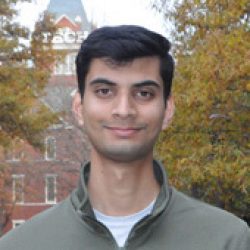 |
| Dhruv Purushotham, BSAE '18 |
Barring any surprises, and I don't see any, I will be continuing my work in graduate school studying under Prof. Oefelein in the high-performance computing lab. I plan to focus on improving simulations techniques for complex fluid flows. Before I begin my studies, however, I will be taking a brief break in New Zealand, which is my home.
What about your next adventure are you most looking forward to?
I want to become a research scientist. I've always wanted to become a research scientist. I love the subject matter - planes and rockets are cool -- and I want to be able to research because I see it as a realistic and fulfilling way to use what talents I have. It is also a great platform on which to change the world for the better.
Did you have any previous co-op, internship, or research experience in this area?
I started out in the physics department, freshman year, doing experimental work where I took measurements of siliconphoto-multipliers. I was a co-author of a peer-reviewed paper, which was a great experience. After that, I began an undergraduate research project with Prof. Sankar that focused on computational fluid dynamics (CFD). The skills I developed there led to a global internship at the Indian Institute of Science where I was validating a CFD solver that was under development. After that I received a PURA to do research on accelerating code using advanced computer architectures. I was able to run codes more quickly on the Summit computer that is located at Oakridge National Labs.
How did your educational experience at Georgia Tech help you to achieve your goals?
In some ways, Tech has given me everything. I knew I liked physics, rockets, and planes when I got here, but I didn't know where to take that. At Tech there were people - like Dr. Sankar who introduced me to the BS/MS Honors Program, and Dr. Seitzman, who always helped me refine my questions, and Dr. Oefelein, who gave me access to the Summit computer - they gave me advice that gave me a perspective on what was possible. And I would never have had a prayer of using the Summit if it weren't for Dr. Oefelein,
What advice would you give to an underclassman who would like to follow the same path?
In my case, I had a goal, and I didn't know how to get there as an international student. The best thing I did was to reach out. The advice I'd give to anyone in my situation is to talk to the professors whose research interests you. Ask them how they defined their own path. They were undergrads once, too, and they have knowledge of a wide number of research areas and industry needs. They can help you find your way.
Liz Halloran, B.S. AE '18
What is your next adventure?
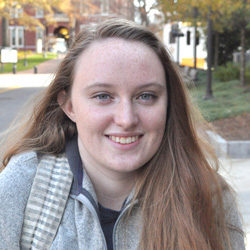 |
| Liz Halloran, BSAE '18 |
I am going to work as a systems engineer at Boeing in Everett, Washington.
What about your next adventure are you most looking forward to?
It'll be really exciting to be in the industry and applying the knowledge I have studied for so long. I did a lot of model-based systems engineering when I was studying in ASDL, so I'm excited to go work on the actual systems.
Did you have any previous co-op, internship, or research experience in this area?
I was involved in the Model-Based Systems Engineering program at ASDL from my sophomore year to my senior year, where I worked on teams that worked on the NASA Pathfinder. Everyone on the project had a team at NASA that they consulted with. We were working on developing analytical tools.
I also worked with Dr. Sankar in the Computational Fluid Dynamics Lab, working on physics-based modeling and boundary theory. I was able to do data collection for a grad student, Avani Gupta, who was authoring a paper, "Development of Physics-Based Models for Ice Shedding" for the European Rotor Craft Forum. So I was a co-author.
I also interned at Georgia Tech Research Institute and did two study-abroad semesters - one in China, and the other in Ireland,
How did your educational experience at Georgia Tech help you to achieve your goals?
Aerospace engineering is too hard to do it for anything but love of the subject. And that's what you find at the AE School. Your classmates want to make a living, sure, but they are not studying this hard just for the money they'll make. And that made a difference to me.
The other thing is, the research opportunities really connect you with the faculty. Dr. Sankar was really like a mentor to me - especially in Limerick, where he offered to let me work with him on CFD tools. That got me connected to what I did in the fall.
What advice would you give to an underclassman who would like to follow the same path?
My best advice would be to not compare yourself to your peers at the AE School because they really are pretty much the smartest people you're going to meet in the field. You have to go out on your own and try everything. Then pick something that appeals yo you and work on it. The research I got to do was more than enough to keep me from comparing myself too harshly. I was too busy, and it was too interesting.
The other thing I'd say is to study abroad. Studying abroad really gave me perspective. I thought it would be impossible to do more than one after I did the China one, but AE makes it possible with the Limerick program. The Limerick program was especially great because everyone who goes is an engineer, so you can geek-out with them.
William Jun, B.S. AE '18
What is your next adventure?
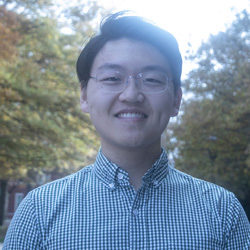 |
| William Jun, BSAE '18 |
I am coming back to the Aerospace Engineering School to pursue a doctorate with Dr. Lightsey. I'll be continuing the research that I started at JPL, building navigational architecture for future space missions. Navigational architectures in space are like GPS here on earth where we locate ourselves by connecting to a satellite. I've been working with JPL to develop one for the moon and Mars.
What about your next adventure are you most looking forward to?
I'm excited about diving deeper into the research I started at JPL. Navigational architectures. It really embodies what I'll be doing in grad school. The task of navigating on the moon or Mars is very interesting. Our goal is to determine positioning using just one satellite, which is amazing, really, because on earth you need to use four to get that fix.
Did you have any previous co-op, internship, or research experience in this area?
I started doing research the second semester of my freshman year, when I started working on the RECONSO satellite with Professor Holzinger. I loved all of the hands-on work. Sophomore year, I joined the research team working with Dr. Spencer on Prox-1, another cubesat. I worked my way up over the last few years and, by the time it [Prox-1] was sent off-site, I was the project manager. My main task with Prox 1 was acceptance testing - where I had to ensure that the entire domain - all of the components, all the subsystems - worked together the way you expected them to. And I had to find out what didn't. The great thing about both of these experiences is that I was able to learn a lot about every single component, every single subsystem. All of my research has given me good experience in hands-on hardware and with framing up a complex problem in order to solve it.
I also interned at Northrop Grumman, half as a systems engineer, and half as model and simulation analyst. I developed software that could interface with the different simulated tool interfaces. At JPL, where I was the summer of 2018, I started working on navigational architectures, which is what I'm doing now.
How did your educational experience at Georgia Tech help you to achieve your goals?
Georgia Tech has given me every single option I could ask for and so much more. When I first toured the campus, they let me see the flight hardware lab in the ESM building. All I could think then was this is the coolest thing in the world. I cannot even imagine being able to touch these tools, and work on those problems. Little did I know that the second semester freshman year, that's exactly what I'd get the chance to do.
When I first got to Tech, I had zero skills- just my love of space. I kept finding that people willing to help dig in. There is also so many amazing mentors -- faculty and other students. I love how horizontal the opportunities are in the AE School: I can just go up to someone who's doing some amazing work, and, just by asking them, I can end up being invited to join them. The entry barrier is that low. The only thing I had to do was commit myself to the work, to put in at least 100 percent.
What advice would you give to an underclassman who would like to follow the same path?
It would be three things.
First, get involved. Whatever you like, find it -- it's here -- and get involved one way or another.
Second of all, find a group of students who you feel comfortable with, and find a couple of professors you like that you can approach for advice. Georgia Tech has so many people with so much knowledge to share. It's worth it.
Third, I'd say, essentially, don't be afraid to jump in. One of the biggest things I learned from all of my research was to jump in and keep going. Sure, when they hand you a research assignment and you won't know the words, the technical terms, the equations - it's hard. You have to get beyond that, to the point where you are saying to yourself: "How can I use the skills and knowledge I have to figure this out?" Don't let that initial learning curve be the reason you don't try. Because once you get over that curve, that's when it gets good. And that's when people will start coming to you for answers.
